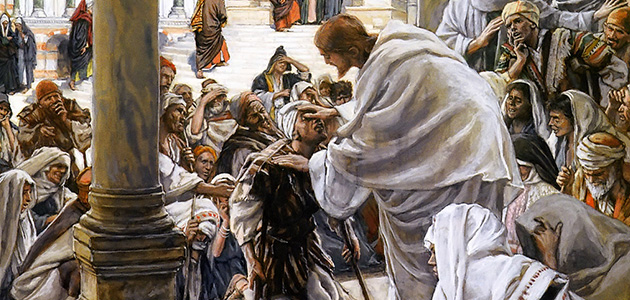19 March 2014
Paul's View of Slavery
by Dr Mark Keown
My friend and learned colleague Phil Church’s excellent blog “Does the Bible Really Condone Slavery?” got me thinking. Phil rightly challenges the idea, even recently propagated by Kevin Rudd in Australia, that slavery is accepted as normative in the Bible. I wanted to build on Phil’s excellent thoughts with two further angles. First, what did Jesus say about slavery? Secondly, I want to make a few further comments on Paul’s view of slavery.
First, considering Jesus attitude to slavery is important as, in my view, good theology begins with Jesus. Jesus endorsed servanthood as the path to greatness. Service of God is the priority of Christian life (Matt 6:24). However, this service is set in the context of a familial relationship with the God who has set us free from all forms of slavery into his family as children. Jesus showed great love for slaves and servants, healing them (Matt 8:6-13). He told parables using the motif of humanity as servants and God or Christ the master (e.g. Matt 13:27-28; 18:23-33; 21:34-36). Yet he did not endorse slavery. He assumed the position of God’s servant, fulfilling the hopes of Isaiah (Matt 12:18-21, cf. Isa 42:1-6; 49:1-7; 50:4-11; 52:13-53:12). He came not to be served, but to serve (Matt 20:28). He repeatedly said that willingly being a servant is the path to greatness for a disciple (Matt 20:26-28; 23:11; Mark 9:35; 10:43-45). Jesus rejected the patterns of rule of the Gentile world including enforced servitude, and spoke of leaders leading with service (Mark 10:43-45). As Jesus friends (John 15:15), we are to be faithful willing servants of the Lord who saved us by his service (Matt 24:45-46; 25:13-30). As Son of Man, Son of God, and Lord, i.e. the king of the universe, he rejected slavery as a means of control over his people. Rather, he urged people to come to him willingly and serve willingly from hearts of gratitude. He spoke of a reversal of the order of the world, and embodied it in his ethic. This is not an endorsement of slavery. This is the institution of a different kind of world order in which people live out of love and not compulsion. Jesus was real about slavery, it was axiomatic in his world. But he inaugurated a kingdom where the elite would be brought low, and the humble raised up. This is not an endorsement of slavery.

Secondly, while it is true Paul to a degree accepted slavery as a part of his world, his letters at three points indicate a transformed world in which slavery is a thing of the past. First, Galatians 3:28 speaks of a church in which there is no racial boundaries, no gender domination, and no “slave nor free.” Why, because all are free in Christ (Gal 5:1). Free to serve one another with a love that springs forth from faith by the Spirit (Gal 5:6, 13-14). This text is in a sense the story of the history of the church and the world as it has come to terms with the radical social agenda Jesus inaugurated. Paul envisaged this gospel of all peoples unified in Christ with the old social boundaries shattered penetrating the world. Slowly it has thanks to the work of Nelson Mandela, Martin Luther King, William Wilberforce, our own Kate Sheppard, and many many more. The seeds of the end of slavery are also detected in Eph 6:10 where, after careful instruction to Christian slaves to honour their masters with sincere obedience as to the Lord, Paul urges Christian masters to “do the same to them.” Some commentators limit this to attitude, yet others like John Chrysostom (Homily, 22) and Ben Witherington (The Letters, 342 n. 292) see more here. Paul is urging the Paterfamilias who is to love his wife with complete self-sacrifice and raise his children to serve his slaves. Finally, in Philemon 15–16 Paul urges Philemon to take his runaway slave Onesimus back “no longer as a slave but as above a slave, as a beloved brother.” In other words, this runaway who is deserving of extreme punishment in the ancient world is to be granted the status of brother and citizen of the heavenly politeuma (Eph 2:18-22, cf. Phil 1:27; 3:20). The appeal of Eph 6:9 and indeed Phlm 15–16 sounds far-reaching and rather more than anticipative of the later work of Wilberforce and others to end institutional slavery in many nations. O’Brien notes of Eph 6:9 that it is “a shocking exhortation to slave owners in the first-century Graeco-Roman world… Paul’s cryptic exhortation is outrageous” (O’Brien, Ephesians, 454).
So, far from endorsing slavery, Jesus followed by Paul had a vision of a world where slavery is a thing of the past and service is willing and universal. Our job is to bring that vision to be in our churches, and wherever we cast influence. May we do so well.
